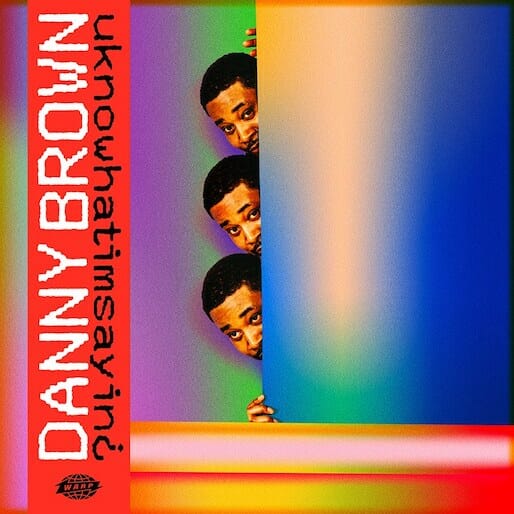Danny Brown Finally Stumbles into Adulthood on the Excellent uknowhatimsayin¿
The Detroit rapper returns with a slower, more empathetic release

Danny Brown always seemed immortal. His trilogy of critically acclaimed releases—2011’s incendiary XXX, 2013’s decadent Old and 2016’s staggering prog-rap opus, Atrocity Exhibition—found the Detroit MC repeatedly self-destructing, masquerading the references to his childhood traumas with an infinite supply of party pharmaceuticals and charisma. Every time he sounded like he was truly on the brink, he’d return, and usually messier, drunker, funnier. His music got better. He was invincible. Maybe.
It’s a relief that Brown sounds mortal on his new album, uknowhatimsayin¿. He sounds healthy, if in a high-cholesterol way. He looks it, too—watch his new talk/sketch comedy show, Danny’s House, and you’ll be presented with a nearly unrecognizable figure, complete with a malleable gut, a newly-complete set of pearly whites and an unpretentious fade. He looks like he’s about two shakes away from buying a convertible and getting a divorce.
uknowhatimsayin¿ isn’t a midlife crisis album, though. He may have cleaned up his act, but only to a point; gone are the days of pill-popping and doing lines before noon, but the 38-year-old is just as horny as ever, spending his days smoking weed and playing videogames before hitting the strip club (or maybe a Burger King bathroom, if you believe lead single “Dirty Laundry”) with his pals. Still, the album is a slower, more empathetic effort that finds Brown channelling his chaotic energy into honing his comedic craft; this is far and away his most intentionally funny record, chronicling the comic absurdism of so-called adult life in contemporary America (“I eat so many shrimp I got iodine poisoning”) just as much as he contends with his unknown future as “a demon on the hunt for the succubus.”
-

-

-

-

-

-

-

-

-

-

-

-

-

-

-

-

-

-

-

-

-

-

-

-

-

-

-

-

-

-

-

-

-

-

-

-

-

-

-

-








































